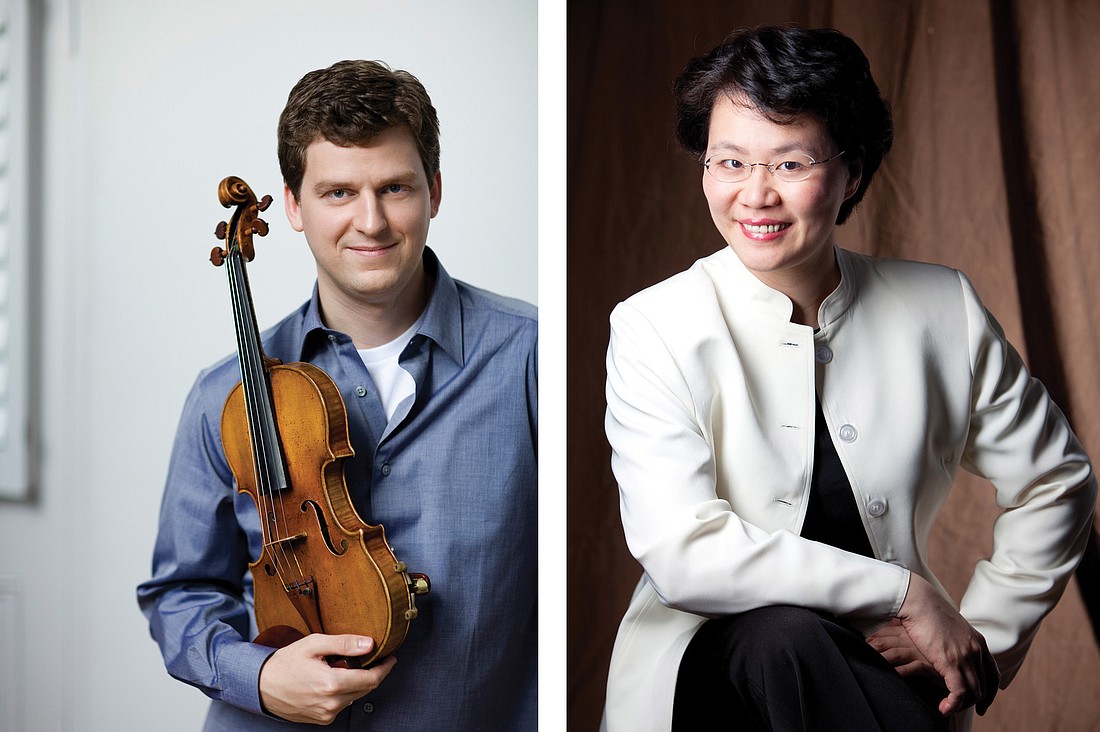- July 26, 2024
-
-
Loading

Loading

It was a beautiful, breezy, sunny day at the tail-end of the Sarasota Orchestra’s season, and the last thing I wanted to do was spend it in a dark concert hall. We’d only recently heard a not very good performance of Beethoven’s Violin Concerto by a visiting orchestra, so the fact that all 42 minutes of it would take up the second half of this program certainly didn’t thrill me. Fortunately, the music and the performance made up for it all.
The conductor, Mei-Ann Chen, currently music director of the Memphis Symphony and the Chicago Sinfonietta, was teamed with James Ehnes, a violinist who resides in Bradenton but has established himself as a major international soloist. With the Sarasota Orchestra, they provided one of the most mesmerizing and cohesive performances of the Beethoven we’ve heard.
Starting with a well-planned, relaxed tempo, Chen brought out things in the orchestra that made total sense of this lengthy work. She and Ehnes seemed to have the same vision of the Beethoven and, in his cadenzas — which sounded spontaneous as well as intelligently thought out — Ehnes turned his solo instrument into a full orchestra, using the double stops with such ease and fluidity, we felt he was accompanying himself.
The program began with “Too Hot Toccata,” a fun, jazzy and accessible piece by Aaron Jay Kernis. Bach, of course, was one of the most famous exponents of this form, which was used in the Baroque period to show off the particular performer’s acuity, while bringing out the instrument’s facility. Kernis, who is much beloved in the Midwest because he was composer-in-residence of the St. Paul Chamber Orchestra in the early 1990s, wrote this piece in honor of the principal players of that ensemble. And, with its ingenious riffs and agile syncopations, it showed off the individual and ensemble abilities in the Sarasota Orchestra sections. John Adams may have done it with a bit more subtlety in his “Short Ride in a Fast Machine,” but the effect was fun, and “Too Hot Toccata” was a great tribute to the abilities of the Sarasota players and their guest conductor.
Mozart’s Symphony No. 25, known as the “Little G Minor,” was another great testing ground for Sarasota and Chen. Conducting this well-known score from memory, Chen elicited clean, clear articulation from all the sections, a spare but warm sound, lovely colors and great tonal contrasts. Best of all, she trusted these excellent musicians enough to avoid over-conducting them, one of the greatest tributes a leader can pay an orchestra.